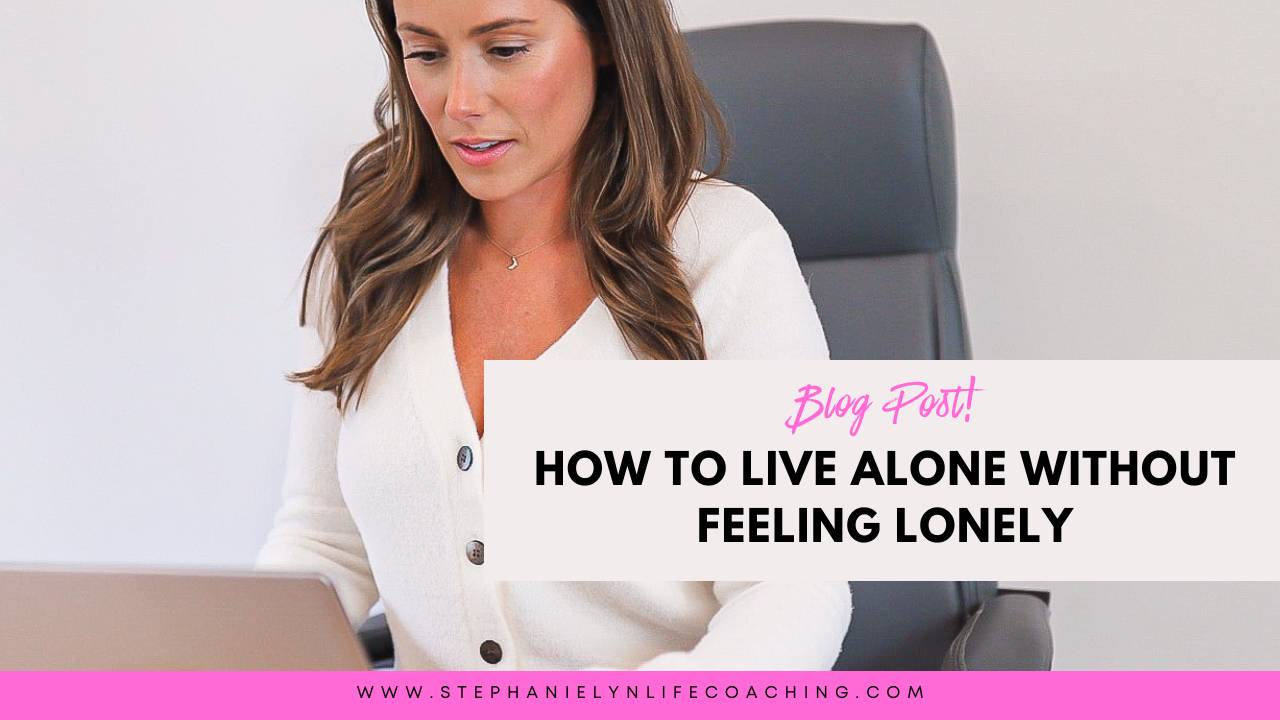How to Live Alone Without Feeling Lonely
Mar 17, 2025
Living alone can be empowering—it's a chance to rediscover who you are, set your own pace, and create a space that's completely yours. But let’s face it, sometimes it also feels heavy. Especially if you’ve just come out of a relationship or have experienced a major life change like divorce, loneliness can creep in. It's not about having people around all the time, but about how you learn to be okay with yourself.
So if you’re struggling with being alone and feeling lonely, let’s dig into real ways to shift that mindset and reclaim your space.
Step 1: Understand the Difference Between Being Alone and Being Lonely
It’s important to understand that there’s a big difference between being alone and feeling lonely. Being alone is a physical state—you’re by yourself. Feeling lonely, on the other hand, is emotional. It’s a sense of isolation, even when you're surrounded by people. So, stop beating yourself up about being by yourself. Being alone can be empowering if you take control of how you feel about it.
Step 2: Shift Your Mindset – Embrace Your Own Company
Living alone can feel like a void, but it doesn't have to be. It’s all about perspective. Instead of seeing solitude as a punishment or something negative, see it as an opportunity. Take it as a chance to explore who you are without distractions. Get to know yourself again—the things you like, the things you don’t, and all the quirks that make you unique.
Embrace the freedom that comes with being able to make decisions without worrying about anyone else’s opinion. You don’t have to compromise on how you spend your time or what you want to do. It's all yours.
Step 3: Fill Your Space With Meaning
If you’re living alone and feeling lonely, it might be because your environment feels empty or lacking. Start filling your space with things that inspire or comfort you. This could be your favorite books, music, art, or even things that remind you of your personal growth. Decorate in a way that makes you feel good, not just comfortable. Create a space that reflects the person you’re becoming.
Even though you’re physically alone, having a space that feels full can make a huge difference in how you feel.
Step 4: Create a Routine That You Love
Living alone gives you the perfect opportunity to build a routine that fits you. No more compromising or adjusting to someone else’s schedule. Create a morning and evening routine that fills you up—whether it’s meditation, yoga, journaling, or something as simple as a hot cup of tea to start the day.
By having a routine, you’re giving yourself a sense of purpose and structure, which helps combat feelings of loneliness. Plus, knowing you’ve set aside time for yourself makes it easier to value your alone time instead of wishing it away.
Step 5: Develop New Hobbies or Rediscover Old Ones
If loneliness starts to creep in, one of the best things you can do is get busy. And I don’t mean just filling time, but actively engaging in things that make you feel alive. If there’s something you’ve always wanted to try—whether it’s learning to paint, cooking new meals, or even taking up an online course—now’s your time.
If you already have hobbies, dive into them deeper. Reconnect with things that bring you joy, things that don’t require validation from others. When you’re creating, learning, or doing something just for you, the loneliness can start to fade.
Step 6: Be Social Without Feeling Dependent
Living alone doesn’t mean you have to isolate yourself completely. Make plans to see friends, family, or even acquaintances. But here’s the key—do it because you want to, not because you feel like you need to be around people to feel okay. If you’re always relying on others to fill the void, loneliness will follow you.
You can start small by attending a community event, getting coffee with a friend, or reaching out to someone you’ve been meaning to reconnect with. The goal is to connect on your own terms, without depending on others to make you feel whole.
Step 7: Practice Self-Care and Self-Compassion
Loneliness often brings up feelings of inadequacy or sadness, especially if you’ve just been through a difficult time like a breakup. That’s when self-care becomes even more important. Self-care isn’t just about bubble baths and face masks (although those are nice). It’s about being kind to yourself, acknowledging your emotions, and giving yourself grace when you feel down.
Treat yourself the way you’d treat a friend going through the same thing. Remind yourself that it’s okay to feel lonely sometimes. You’re not broken. You’re just in the process of rediscovering what it means to be your own support system.
Step 8: Seek Professional Help If Needed
Sometimes loneliness runs deeper than just being by yourself. If you’ve been struggling with depression, anxiety, or feelings of isolation, reaching out for professional support is a huge step in the right direction. Therapy can help you address underlying issues and teach you how to build a more fulfilling life.
You don’t have to figure it all out alone. If you need help, ask for it.
Living alone doesn’t have to mean living with loneliness. It’s about shifting your perspective, embracing the space you’ve created, and learning how to enjoy your own company. By filling your life with things that bring you joy, developing new routines, and finding your own sense of purpose, you can go from feeling isolated to empowered.
Take this time to reconnect with who you are, and remember—being alone is not the same as being lonely.

